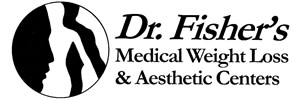 |
161 Bustleton Pike Feasterville, PA 19053 (215) 987-4592 more locations here... |
| Music Therapy for a Healthier Mind |
 |
| Sunday, 02 December 2012 |
 They say that music calms the savage beast. It can also improve your mood if you just need a pick-me-up. They say that music calms the savage beast. It can also improve your mood if you just need a pick-me-up. Here are some ways that music therapy can help lift your spirits and avoid the blues. Depression is a disorder that affects the brain. Different levels of neurotransmitters that are responsible for mood changes can cause one to be more deficient than another, leading to a state of sadness that doesn’t seem to end. The type of chemical imbalance can determine the treatment for depression, but for some, medication can be almost as uncomfortable for their lives as the condition itself. Music therapy has been used to help people with various illnesses and mental conditions to manage their pain and promote healthy changes in the brain for more favorable outcomes. It is a new field of health care but has shown promise with conditions like cancers, ADD, autism, pain management and yes - depression. What is it about music that makes it so effective? Well, you have listened to music. How does it make you feel? Think about the music in movies. In horror films, the upbeat and foreboding tunes cause your blood pressure to rise and your heart to race. In love movies, the low, dulcet tones can lead to tears. There is a reason for this. Music is made up of notes played in specific ways. These notes can stimulate changes in your brain waves. The way those beats resonate can lead to brain waves resonating at the same frequency. Following suit with the brain waves is the heartbeat and breathing functions. When songs have a fast and exciting beat, your heart rate and breathing are just that much faster. On the flip side, listening to slow movements in music tend to slow the breathing and lower the heart rate. This results in a near relaxation state that is affected by musical notes. In a relaxed state, the effects of stress may show signs of decrease in the body and the mind. Depression puts you in a particular state of mind. So can listening to music. Think of some of your favorite songs. What images and feelings do they conjure up? By using familiar songs and those that bring about a relaxed or improved mental state, you can begin to combat feelings of depression that don’t include medication. You can consult a trained music therapist or listen to music yourself and develop your own therapeutic regimen. Music therapy is being shown to affect blood pressure, boost immunity, decrease muscle tension and affect the body in terms of reduced stress levels. Music can be used to not only help increase mood with conditions like depression; it can also combat stress, a contributor to depression. Try it as a tool to manage your condition. |
Profile on Success... CeCe McGhee - Praise 103.9
CeCe McGhee is on a weight loss journey, and it’s going well. Take a look at the slimmer version of Praise 103.9’s Afternoon Angel
Click here for video and photos...











